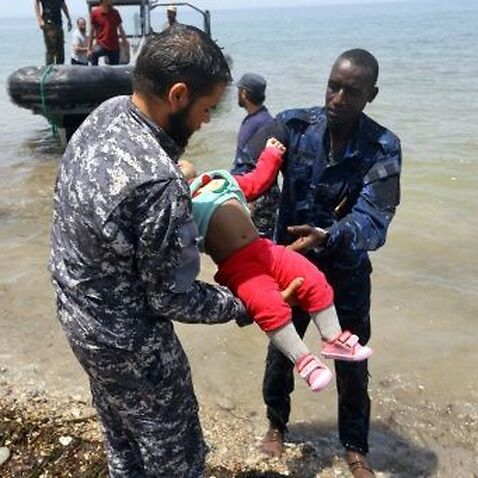Germany's Angela Merkel secures asylum seeker return deals

READ MORE
Fourteen European Union countries say they are prepared to sign deals with Germany to take back asylum seekers who had previously registered elsewhere, part of an effort to placate Chancellor Angela Merkel’s restive Bavarian allies.
In a document sent to leaders of her coalition partners, seen by Reuters, Merkel listed 14 countries, including some of those most outspoken in their opposition to her open-door refugee policy, which had agreed to take back migrants.
Under the EU’s Dublin convention, largely honoured in the breach since Merkel’s 2015 decision to open Germany’s borders, asylum seekers must lodge their requests in the first EU country they set foot in.

Merkel needs breathing space in her stand-off with Bavaria’s Christian Social Union, whose leader, interior minister Horst Seehofer threatened ahead of this week’s Brussels summit to defy Merkel by closing Germany’s borders to some refugees and migrants, a move that would likely bring down her government.
EU leaders agreed at the summit to share out refugees on a voluntary basis and create “controlled centres” inside the European Union to process asylum requests.
According to the document seen by Reuters, the bilateral agreements will make the deportation process for refugees who have earlier registered elsewhere far more effective.
“At the moment, Dublin repatriations from Germany succeed in only 15 per cent of cases,” the document says. “We will sign administrative agreements with various member states… to speed the repatriation process and remove obstacles.”
Among the countries that have said they are open to signing such agreements are Hungary, Poland and the Czech Republic, countries which have opposed any scheme to share out asylum seekers across the continent.
The other countries named are Belgium, Denmark, Estonia, Finland, France, Lithuania, Latvia, Luxembourg, the Netherlands, Portugal and Sweden.
Austria, where new Chancellor Sebastian Kurz is an immigration hard-liner who governs in coalition with the far right, is absent from the list.
Comments
Post a Comment